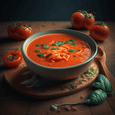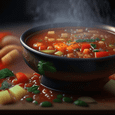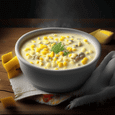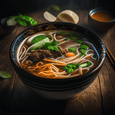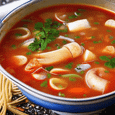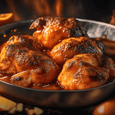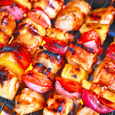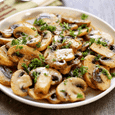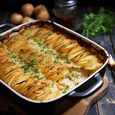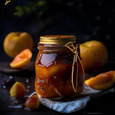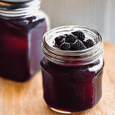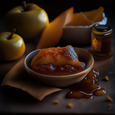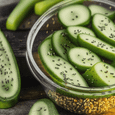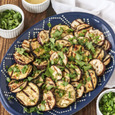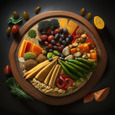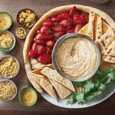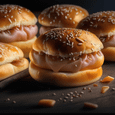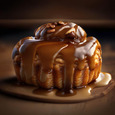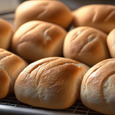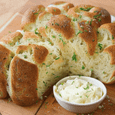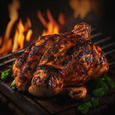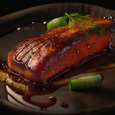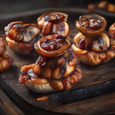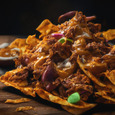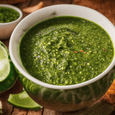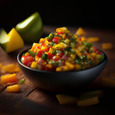Introduction
When the temperature soars, it's important to eat wisely to avoid overburdening your body. What foods, dishes, and beverages can help you cope better with the scorching heat? Here are five simple rules to guide you.
Rule #1: Stay Hydrated
As we all know, our bodies lose a significant amount of fluids in hot weather. It's essential to replenish these fluids regularly with various beverages. Plain water and unsweetened green tea are excellent choices for quenching your thirst. It's recommended to drink about 100-200 ml of a refreshing beverage every 40-50 minutes during hot weather. Additionally, don't forget about seasonal chilled soups like cold borscht or gazpacho, which not only refresh but also provide your body with the necessary hydration. However, individuals with cardiovascular diseases, hypertension, obesity, or kidney problems should be mindful of excessive fluid intake.
Rule #2: Reduce Calorie Intake
During hot weather, our energy requirements decrease by approximately 5%. Therefore, it's advisable to consume less calorie-dense foods. Cut back on fatty meats, cakes, pancakes, and mayonnaise-based salads. Instead, focus on vegetables, fruits, and dairy products. However, remember that fats are still essential for our bodies. Structure your diet to include 28% fats (with two-thirds derived from plant sources), 55% proteins (both plant-based and animal sources in a 50:50 ratio), and 17% carbohydrates.
Rule #3: Adjust Meal Timing
To help your body function optimally in extreme heat, it's recommended to adjust your meal schedule. Plan your main meals for cooler parts of the day. Here's a suggested mealtime breakdown: breakfast at 6-7 am, lunch before the peak heat around 11-11:30 am, and dinner at 6 pm. If you can't sleep on an empty stomach, a small snack is allowed around 8-9 pm. Aim for the following distribution of calories throughout the day: breakfast - 35%, lunch - 25%, dinner - 25%, late snack - 15%.
Rule #4: Swap Dinner with Breakfast
In colder seasons, breakfast is traditionally associated with carbohydrates, providing quick energy. However, during hot weather, it's advisable to modify your menu so that carbohydrate-rich foods are consumed during lunchtime. Opt for vegetable and fruit salads, buckwheat and rice, potatoes, and light soups for your midday meal, without worrying about feeling heavy afterward. Carbohydrates are easily digested and produce minimal oxidative byproducts compared to fats and proteins. This means your body will require less fluid (especially valuable during hot weather) to eliminate them. Save meat and fish dishes for dinner or breakfast when your body will find it easier to digest them. To satisfy your hunger before bedtime, choose low-fat dairy products.
Rule #5: Embrace Vitamins
Sweating causes the loss of valuable vitamins and micronutrients, especially water-soluble vitamins C, B1, B2, B6, and niacin (vitamin B3). This can result in fatigue, weakened immunity, and vitamin deficiencies. To prevent these issues, consume an abundance of fresh seasonal fruits, vegetables, and berries (preferably local ones). Freshly squeezed juices, unsweetened fruit drinks, lemonades, herbal teas, and kvass are excellent choices. Additionally, slightly increasing salt intake when seasoning your food is recommended. Since we are more susceptible to various gastrointestinal infections during hot weather, be vigilant about the quality and cleanliness of the products you consume.
Conclusion
By following these five simple rules, you can ensure proper nutrition and hydration during hot weather. Remember to stay hydrated, reduce calorie intake, adjust your meal timing, prioritize carbohydrates during lunch, and embrace vitamin-rich foods. Take care of your health by making informed food choices and maintaining a hygienic eating environment.

















